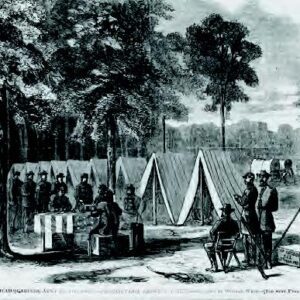March 16, 2023
Contract Negotiations in the Year Ahead
Our collective bargaining agreements are the foundation of the relationship between APWU members and management. Our collective bargaining agreements are the contracts that establish the wages, benefits, and working conditions that we work under. When these contracts expire, the union must enter into negotiations with management to obtain a new contract.
This year the Support Services Division will negotiate contracts for several of our 10 Roads Express units, B & B Trucking, the National Professional Postal Nurses (NPPN), and our Hollingsworth workers. Each of these negotiation sessions are opportunities to make improvements for the working class.
The lead-up to negotiations involves preparatory work that will allow the negotiators to submit proposals that accurately reflect member demands. The most important part of negotiation preparations will be our contact with local leaders and members to gain input about what members want to see changed, added or removed from their contracts. Our union is a democratic organization. We believe each of our members should have a voice that contributes to what they believe should be included in their contracts. While it is unlikely that we will achieve all of our bargaining proposals, it is important that we reach our proposals through consensus of the membership.
Our members’ day-to-day experiences under their current contracts offer the best vantage point to understand what should be proposed to management at the bargaining table. For example, in discussions with our private sector drivers, it has been brought to our attention that there are staffing issues. There are locations where our work is leased and subcontracted out because the company does not have the available drivers to meet the complement. This condition is not acceptable. Since we know about this condition prior to negotiations, we will able to learn more about the cause in our preparatory work to offer proposals to resolve the issue.
Scenarios like these are why it is important for the negotiators to communicate with the members and for the members to communicate with the negotiators. When we all work together it gives us the best conditions to negotiate a good contract.
In terms of working together, we also must show management that the union negotiators and members are unified in the struggle for a good contract. When we sit at the table with management as negotiators, it must be clear that the members are in full support of the proposals that are suggested.
We cannot allow management to believe that the union negotiators’ proposals are independent ideas that do not reflect the interests and concerns of the membership. Acts of union solidarity such as union gear days and contract kickoff events prove to management that we are in a unified effort to obtain good contracts. We will work with local leadership and members to help coordinate acts of solidarity in relation to our contract negotiations.
The Support Services Division leadership looks forward to contract negotiations this year. We will negotiate with tenacity to achieve the best outcomes possible. We need our members to take advantage of the opportunities that will be presented to be involved in the negotiation process this year, and over the next few years as we negotiate contracts for other units. Our input and involvement is key to success. ■



